50+ SAMPLE Event Contract Proposal
-
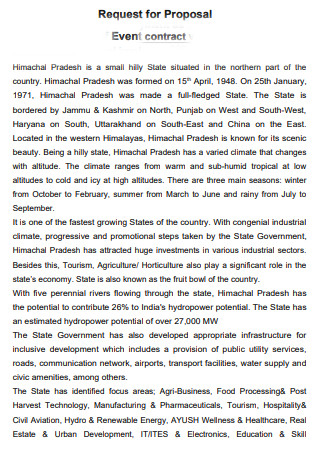
Event Contract Proposal
download now -
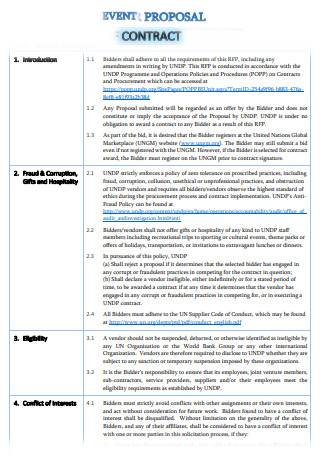
Event Services Contract Proposal
download now -
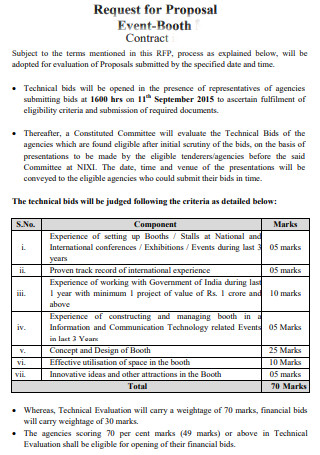
Event Booth Contract Proposal
download now -
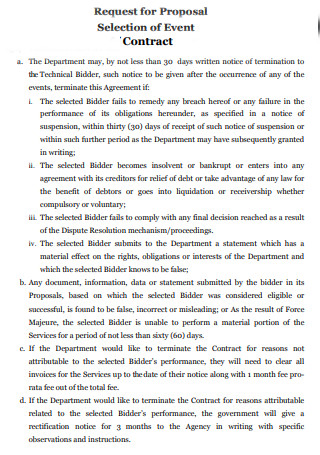
Selection of Event Contract Proposal
download now -
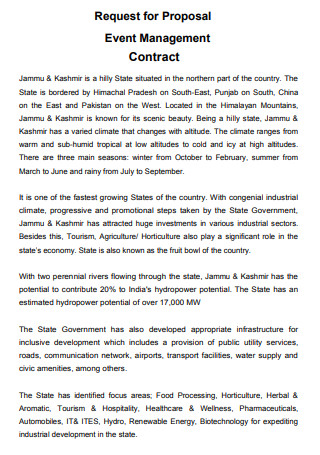
Event Management Contract Proposal
download now -
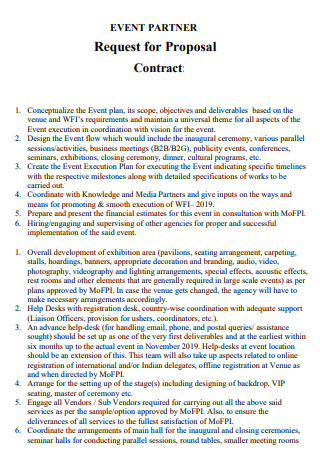
Event Partner Contract Proposal
download now -
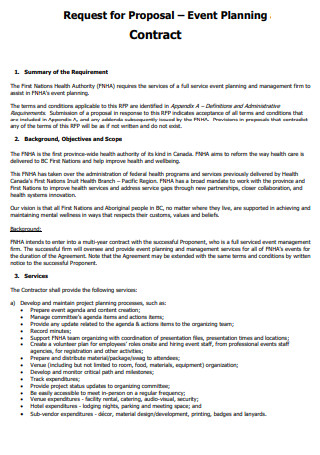
Event Planning Contract Proposal
download now -
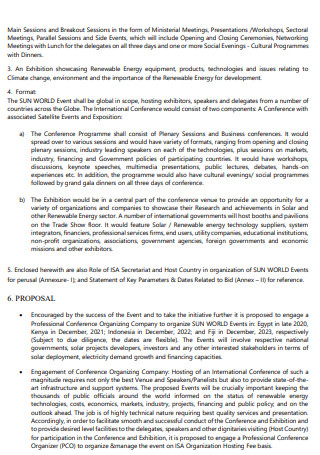
Event Organizer Contract Proposal
download now -
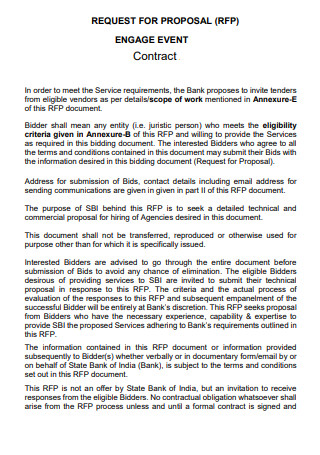
Engage Event Contract Proposal
download now -
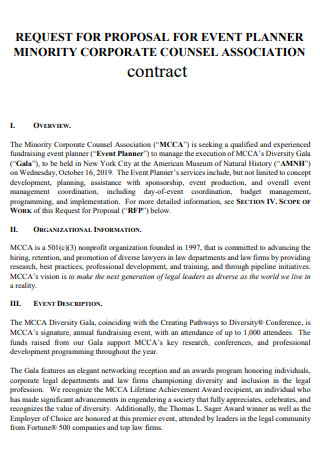
Corporate Event Contract Proposal
download now -
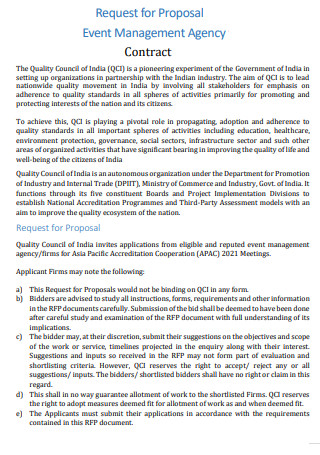
Event Management Agency Contract Proposal
download now -
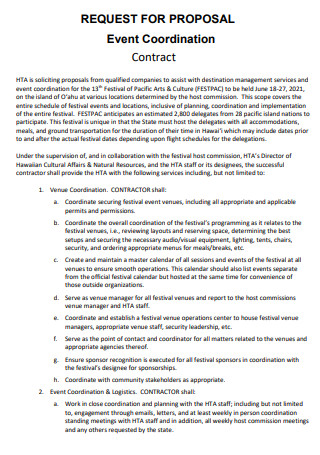
Event Coordination Contract Proposal
download now -
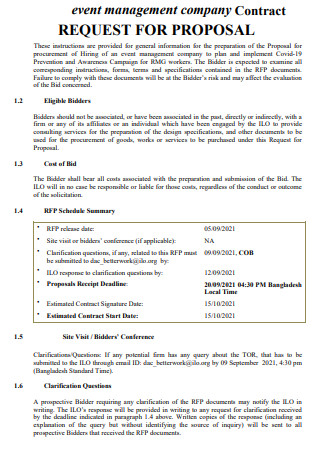
Event Management Company Contract Proposal
download now -
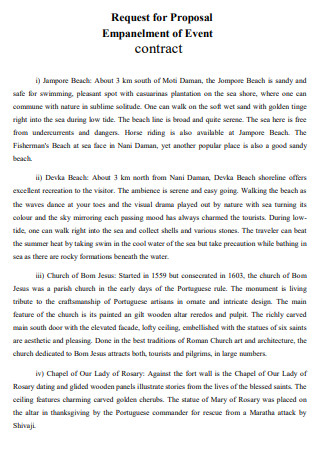
Empanelment of Event Contract Proposal
download now -
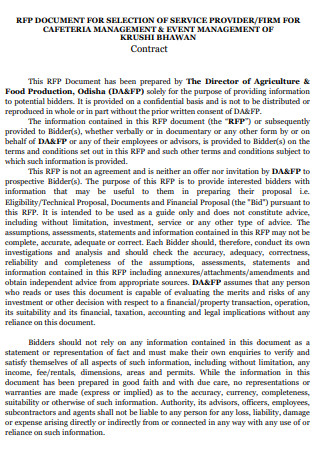
Cafeteria Event Contract Proposal
download now -
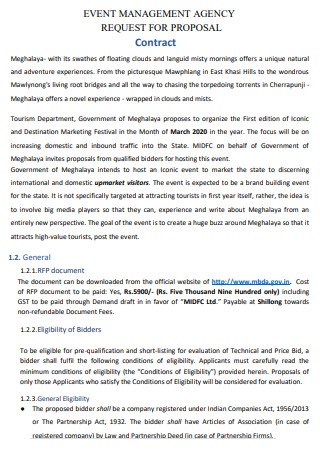
Event Agency Contract Proposal
download now -
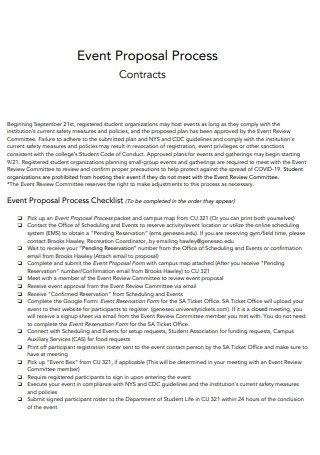
Event Contract Process Proposal
download now -
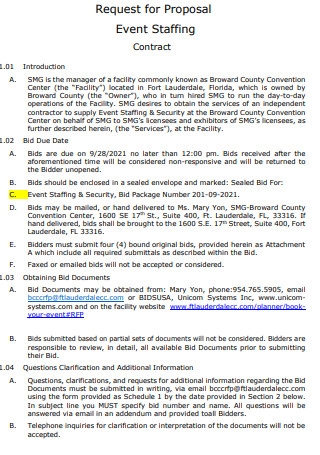
Event Staffing Contract Proposal
download now -
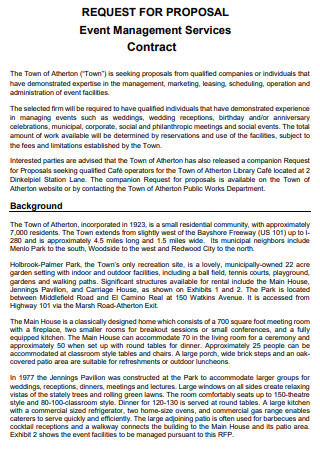
Event Management Services Contract Proposal
download now -
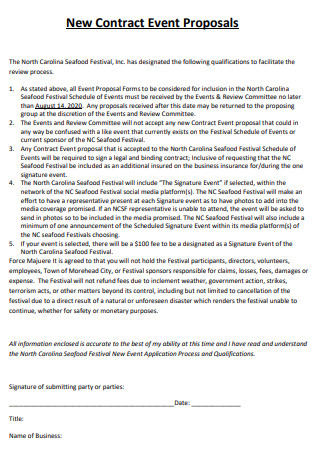
New Event Contract Proposal
download now -
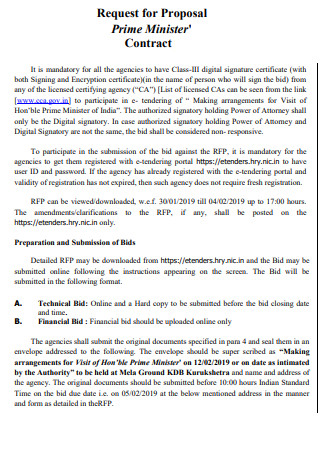
Prime Minister Event Contract Proposal
download now -
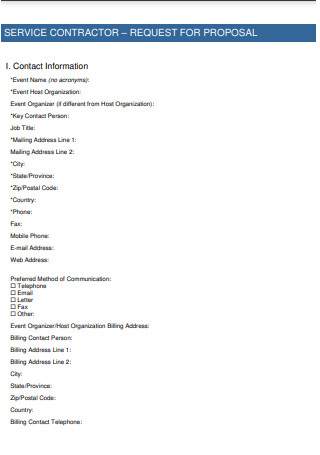
Event Service Contractor Proposal
download now -
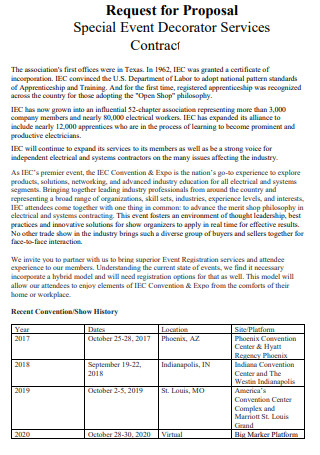
Event Decorator Contract Proposal
download now -
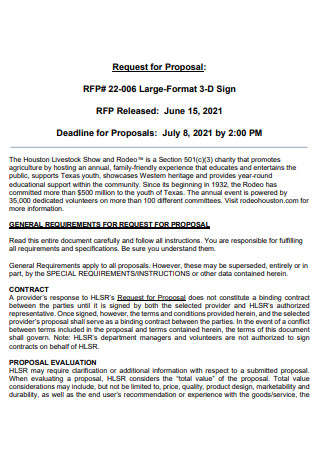
Annual Event Contract Proposal
download now -
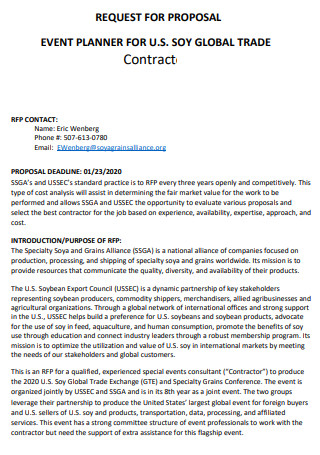
Global Event Contract Proposal
download now -
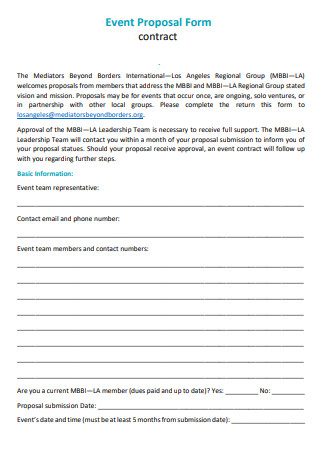
Event Contract Proposal Form
download now -
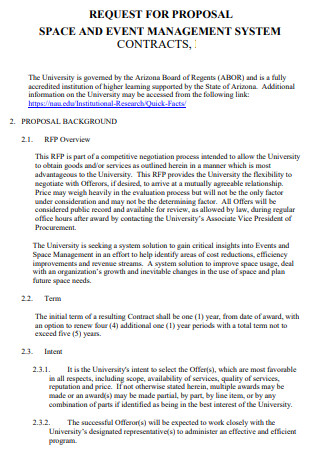
Event System Contract Proposal
download now -
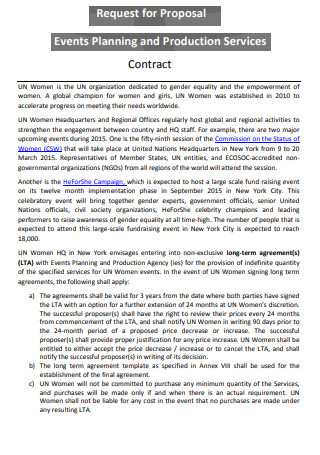
Events Planning Contract Proposal
download now -
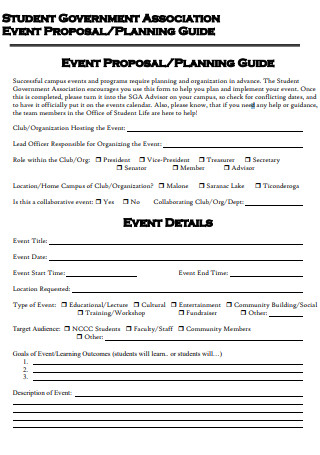
Events Association Planning Contract Proposal
download now -
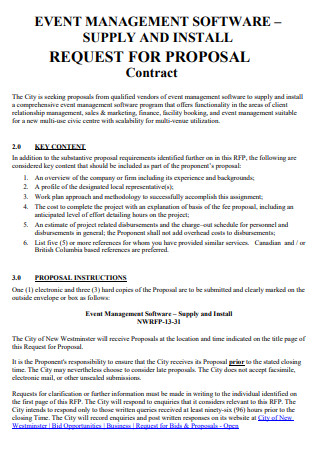
Event Management Supply Contract Proposal
download now -
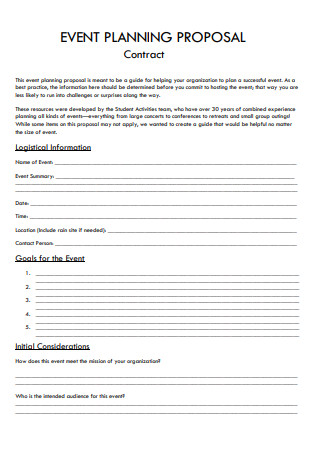
Sample Event Contract Proposal
download now -
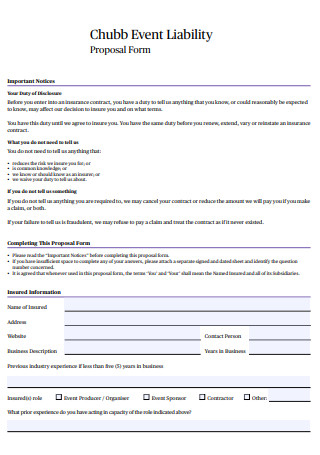
Event Liability Contract Proposal
download now -
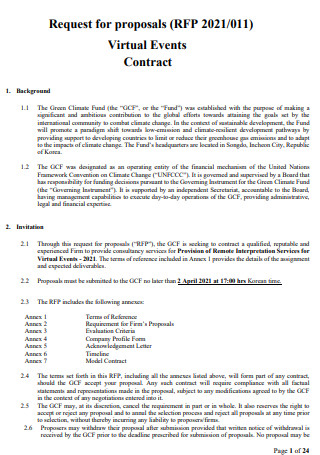
Virtual Event Contract Proposal
download now -
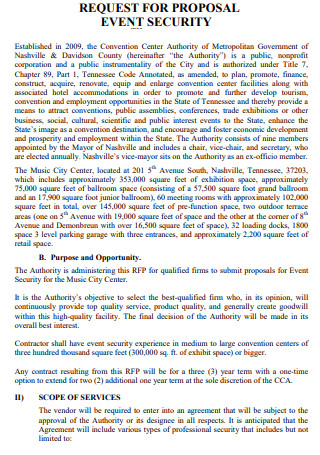
Event Security Contract Proposal
download now -
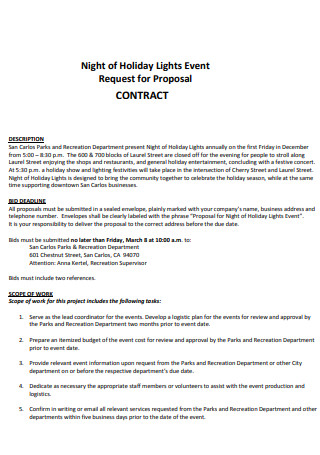
Holiday Lights Event Contract Proposal
download now -
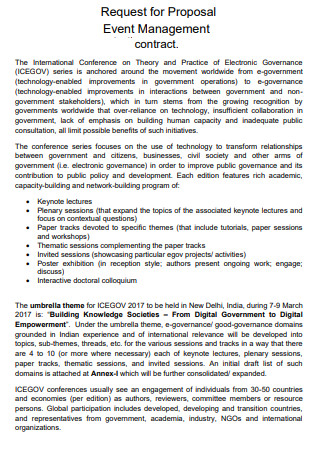
Simple Event Contract Proposal
download now -
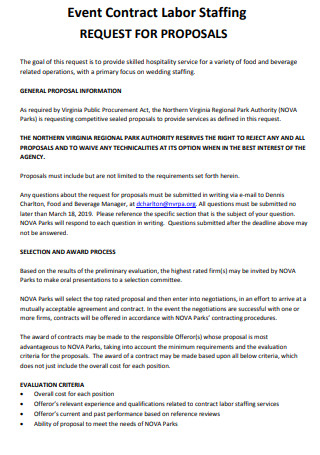
Event Contract Labor Staffing Proposal
download now -
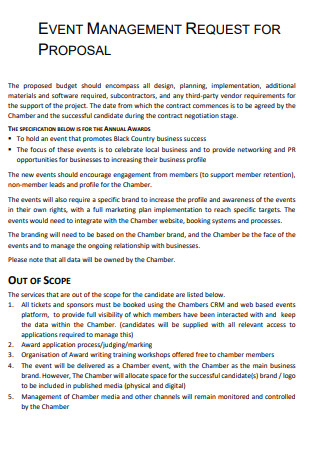
Event Contract Request Proposal
download now -
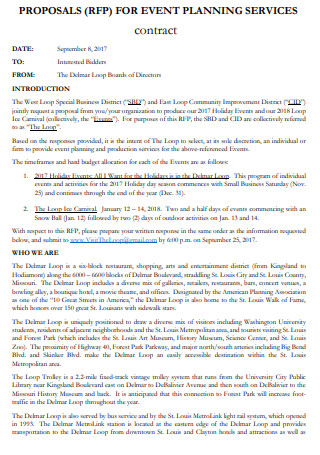
Event Planning Services Contract Proposal
download now -
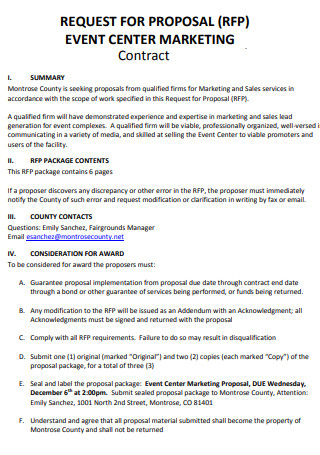
Event Center Marketing Contract Proposal
download now -
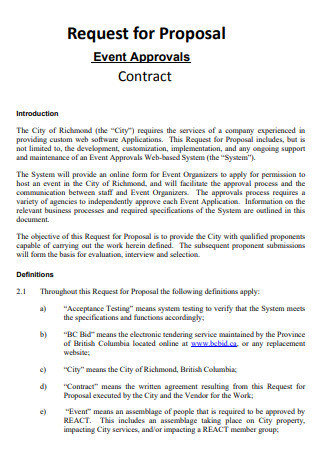
Event Approvals Contract Proposal
download now -
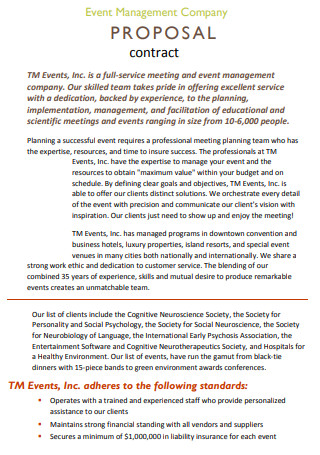
Event Contract Proposal Example
download now -
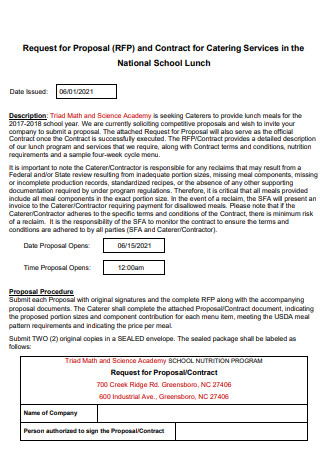
School Event Contract Proposal
download now -
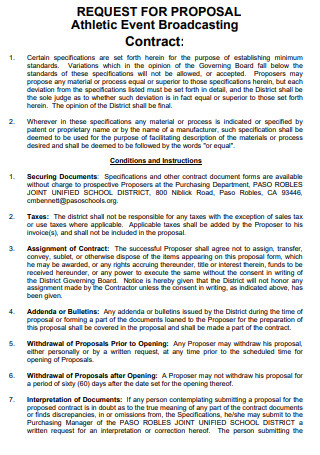
Athletic Event Contract Proposal
download now -
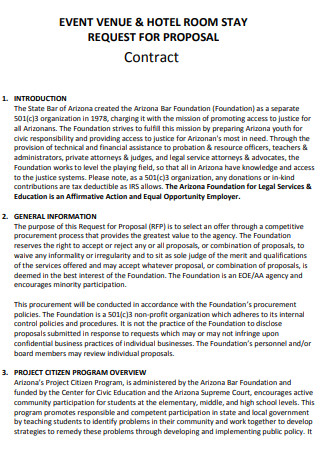
Event Venue Contract Proposal
download now -
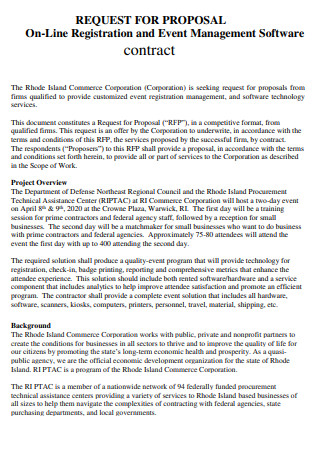
Event Contract Proposal Template
download now -
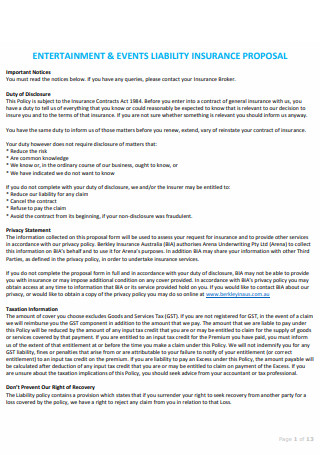
Entertainments And Event Contract Proposal
download now -
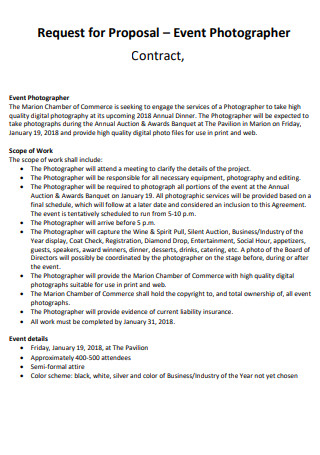
Event Photographer Contract Proposal
download now -
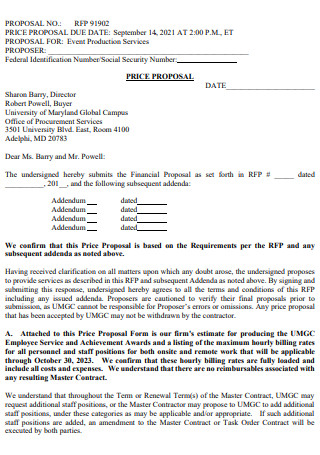
Event Contract Price Proposal
download now -
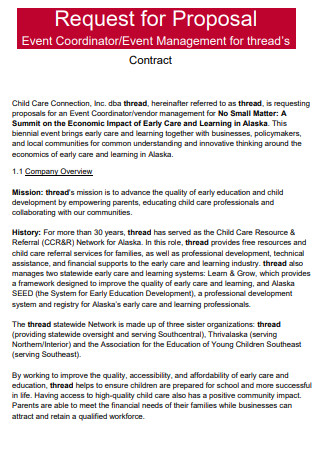
Event Coordinator Contract Proposal
download now -
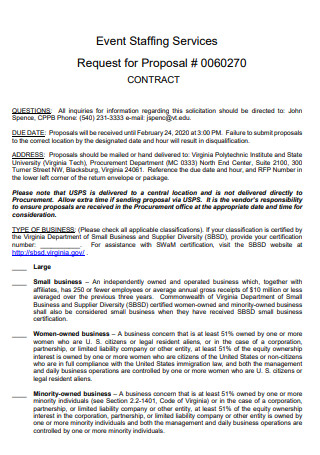
Event Staffing Services Contract Proposal
download now
FREE Event Contract Proposal s to Download
50+ SAMPLE Event Contract Proposal
What Is an Event Contract Proposal?
Roles of an Event Organizer
Requirements for an Event
How to Create an Event Contract Proposal
FAQs
How do you write a proposal for an event?
What is an event management proposal?
What are event proposal details?
What Is an Event Contract Proposal?
An event contract proposal is a formal proposal between an event organizer and a client. The contract proposal outlines detailed terms and conditions regarding the various aspects and requirements of an event.
According to an online article published by Entrepreneur, the events industry has grown significantly in recent years. Annually, the estimated amount is pegged at around $500 billion spent on special events. And working in the special events industry may mean there are many different directions one can take because of the sheer diversity of events. Events can encompass a pretty broad meaning; but it can also be further categorized into four major types: celebrations, education (e.g., conferences, graduations), promotions, and commemorations.
Roles of an Event Organizer
The event organizer wears many hats. And it takes a skilled and competent person to be able to prepare and execute events. Whatever the objectives of an event, the event organizer assumes these different roles while on the job:
Requirements for an Event
The requirements of an event will greatly depend on the type of event and its specific objectives. However, there are some basic requirements that most events need in order for it to be executed properly. These requirements are enumerated and described in detail below.
How to Create an Event Contract Proposal
To create an event contract proposal, you need the proper format if you want a more organized contract proposal. If you are looking for more convenience and ease, you can easily and customize an editable template from the selection above. Simply choose a sample template that suits your needs and keep in mind the following steps.
Step 1: Describe the Event
The first step is to provide an introduction or background on the event. It is not required to go deep into details, a brief but accurate description of the event should be good enough. State the basic information such as the event time, date, location and purpose of the event. Since it is a contract proposal, you should also include the complete names of the parties entering into the contract. This refers to both the client and the event organizer or event planner. The former is the party that contracts the services of the latter. The event planner in this case is the independent contractor who helps organize the event on the client’s behalf.
Step 2: Define the Responsibilities
Once you have given a brief background of the event, the next section should contain the different roles and responsibilities for each party. What are the specific tasks assigned to the event planner? What are his or her functions during each stage of the event? These must be clearly defined and enumerated. If it helps, you can use bullet points in the same format you would use in creating a job description. It is crucial to set expectations and responsibilities early in the partnership so as to prevent needless misunderstanding and confusion down the road.
Step 3: Enumerate the Event Requirements
After defining the roles and responsibilities, you need to then identify the requirements of the event itself. If your introductory background offers a general overview of the event, this section is dedicated to delving into the specifics. As a client, what does the event need? Or if you are the independent contractor, what event services can you offer the client? To illustrate, an upcoming wedding event would need a stage, sound system, LED screen along with a five-course meal. The details and specifications for each of these requirements all need to be mentioned and stated in the event contract proposal.
Step 4: Outline the Terms and Conditions
Lastly, an event contract proposal should contain terms and conditions in addition to the list of requirements or services. Stipulations may vary across different contracts depending on the agreement and discretion between parties. Various terms including payment structure, cancellation policy, release of liability, schedule of deliverables, and a confidentiality clause are some common conditions that are primarily found in event contract proposals. It is imperative that the different terms and conditions are documented well and mutually agreed upon to promote transparency and clarity between both client and organizer.
FAQs
How do you write a proposal for an event?
If you intend to write a proposal for an event, make sure to offer a brief but compelling introduction and background about you or your firm. An impressive portfolio is not a guarantee you’ll get the bid, but it can increase your chances. Also, make sure to include a detailed description of the event and enumerate the different services you offer.
What is an event management proposal?
An event management proposal is a comprehensive proposal that is essentially a sales pitch by an event management agency or firm to a client. It is a proposal that summarizes the former’s services with the hope that the client engages their firm to organize their event.
What are event proposal details?
Essential event proposal details include the event description, responsibilities or job functions, list of services/requirements, stipulations, schedules, etc.
Events are special occasions. And most people like to experience pleasant and memorable events. If you have the right skills and determination, you too can help other people organize memorable events. Browse the sample templates above now to start creating your own event contract proposal!
